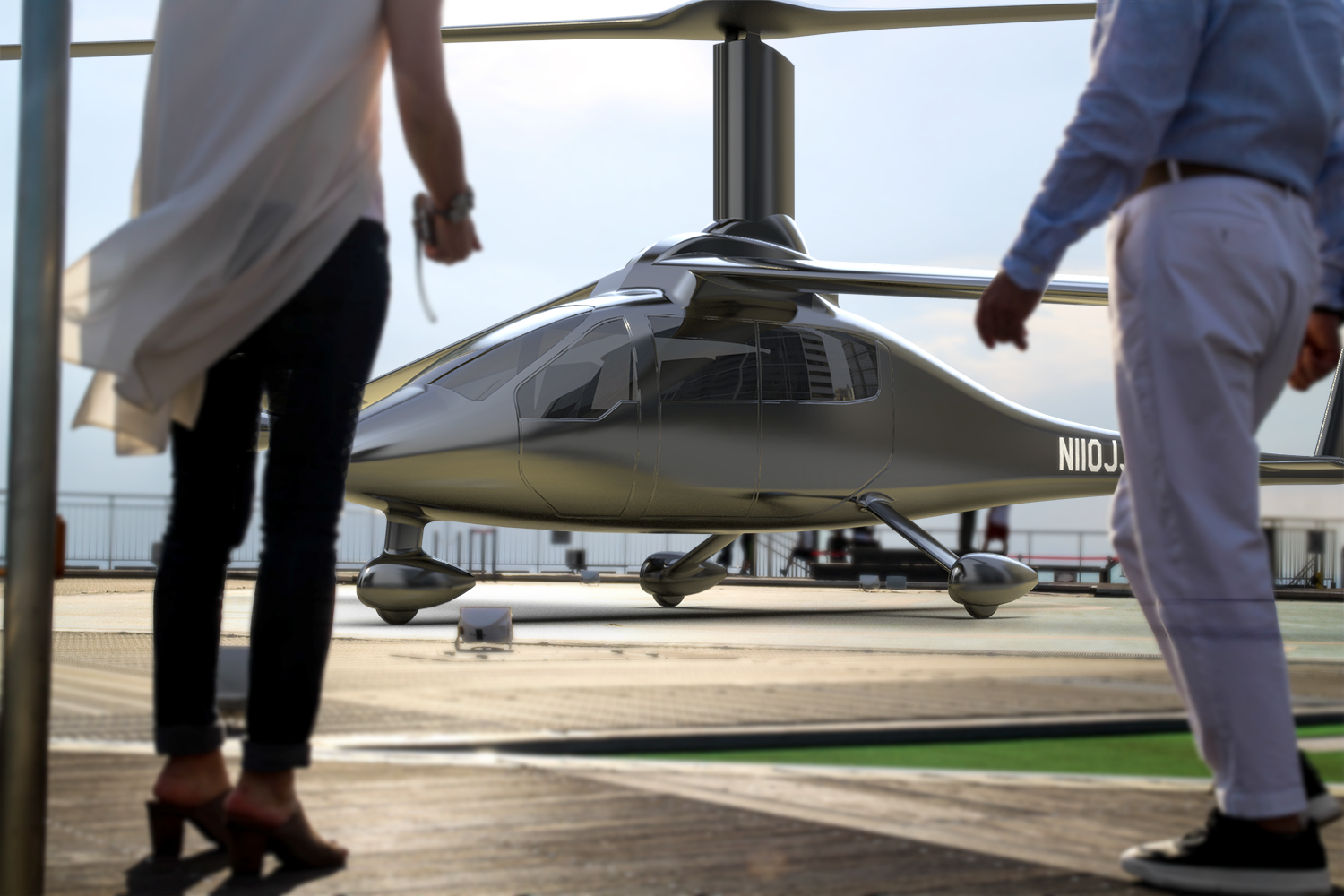Click Here to View This Page on Production Frontend
Click Here to Export Node Content
Click Here to View Printer-Friendly Version (Raw Backend)
Note: front-end display has links to styled print versions.
Content Node ID: 419249
Jaunt Air Mobility is to merge its eVTOL aircraft business with the Airo Group in a move that's expected to lead to an initial public offering (IPO) in 2022. U.S.-based Airo has been building a portfolio of advanced air mobility (AAM) companies in recent years, and this also includes several drone manufacturing and operations ventures, avionics, and robotics capability, and the NeoXcraft eVTOL vehicle being developed by British company VRCO.
The companies today announced a definitive agreement to merge with the intention of raising an unspecified amount of capital to support the development of the all-electric, five-seat eVTOL that Jaunt aims to bring into commercial service by 2026. The company is also working with VerdeGo Aero on a hybrid-electric version of the aircraft that would offer a range greater than the 80-mile limit of the initial model.
Several eVTOL aircraft developers, including Joby, Archer, and Lilium, have raised large amounts of capital by going public through mergers with special purpose acquisition companies (SPACs). Airo has opted to proceed straight to an IPO on its own, maintaining that the established revenue and customer base from the existing drone activities of subsidiaries including Airo Drone, Agile Defense, Coastal Defense, Aironet, Sky-Watch, and Airgility, as well as avionics manufacturer Aspen, will inspire confidence in investors who might be concerned about the AAM fundraising bubble bursting.
“It’s a bit tougher for entities in this sector to come to the market now without breadth [in capabilities], good revenue streams, and an established customer base,” Airo CEO Joe Burns told FutureFlight. The group’s drone businesses support a variety of government customers in applications such as close air support and military training.
According to Burns, who has a background in the air transport business, prospective customers for the Jaunt eVTOL could include regional airlines and helicopter operators. Airo is also looking to target the private aviation sector, which it says could use the new vehicles to provide more efficient transportation options for high-net-worth individuals.
The Jaunt eVTOL is based the company’s patented slowed rotor compound technology, which slows the rotor tip speed to reduce drag and vibration. According to the company, the capability combined with a small wing sized for cruise flight produces a lift- to-drag ratio equivalent to that of a fixed-wing aircraft. Jaunt intends to certify the aircraft under the FAA’s Part 29 rules for commercially operated rotorcraft.
Unlike some other eVTOL companies, Airo does not intend to directly operate its aircraft. The business model will be based on selling the vehicles to established operators while providing full customer and product support.
The Airo Group’s chairman, Chirinjeev Kathuria, told FutureFlight that VRCO’s NeoXcraft will initially be focused on autonomous cargo operations but could also be adapted for passenger flights aimed at the VIP market. “Because of the efficiency and inherent safety features of the [larger] Jaunt design, it is ideally suited to be a piloted high-volume ‘feeder’ aircraft for regional airline operations and platform operations such as [to carry workers to] oil rigs,” he explained.
“[The] Airo Group’s positioning leverages decades of industry experience across the eVTOL airframe, drone [manufacturing] and drone services, training, and avionics markets, offering a sector-leading enterprise,” Kathuria maintained. Following a wave of aerospace industry mergers, he said, there is now a gap in the market for mid-tier companies like Airo to fill by providing wider capability and an established customer base that many eVTOL start-ups lack.
“In the urban air mobility market, we believe there is room for three new manufacturers and two existing manufacturers,” he commented, while also acknowledging that some of Airo’s rivals are promising expedited commercial returns from the new aircraft by around 2024. “Certification, endurance, and training issues will likely delay service introduction by most suppliers for at least three years,” he added.
Jaunt CEO Martin Peryea said that the company’s plans to certify and start manufacturing its Journey aircraft will proceed as planned following the merger, with existing partners including BAE Systems, Triumph, and CAE all committed to the program. However, he does see opportunities to tap technology developed by new Airo Group siblings, including systems to support the autonomous operations anticipated in the longer term for the AAM sector.
“There will be significant benefits from fully integrating our ERP [enterprise resource planning], HR, and supply-chain processes, and also from sharing a diverse array of internal capabilities like avionics, flight controls, autonomy, and artificial intelligence,” Burns added.
Meanwhile, Airo’s UK-based subsidiary, VRCO, is preparing to start flight testing its four-seat XP4 eVTOL prototype in 2022. Aspen Avionics plans to provide flight displays for the aircraft. CEO Michael Smith told FutureFlight that the company might seek to pursue logistics delivery applications for the vehicle before it wins approval for passenger transportation.
